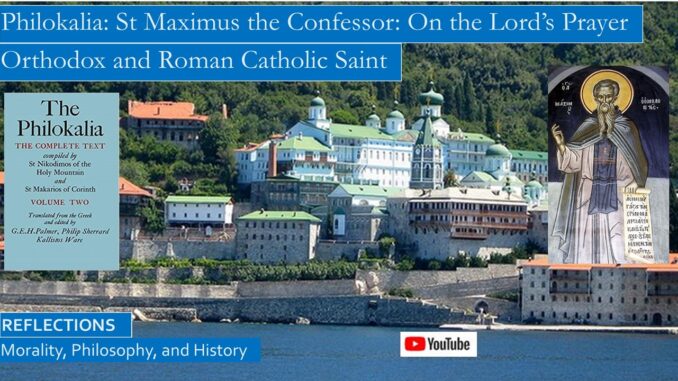
How can we be saved? Jesus, repeating Deuteronomy, exhorts us, “You shall love the Lord your God with all your heart, and with all your soul, and with all your mind. This is the greatest and first commandment. And a second is like it, You shall love your neighbor as yourself. On these two commandments depend all the law and the prophets.”[1]
St Maximus’ commentary on this commandment teaches us that if we truly Love God, this love is a great blessing that binds God and man together, and as much as is possible for man, Christ incarnate, the perfect deified man, will manifest Himself in the deified man to raise him up as an adopted son to his Father. “Love is a great blessing and of all blessings the first and supreme, since it joins God and men together around him who has love, and it makes the Creator of men manifest Himself as man through the exact likeness of the deified man to God, in so far as this is possible for man.”[2]
St Maximus teaches us: “Love makes man god, and reveals and manifests God as man, through the single and identical purpose and activity of the will of both.”[3] St Maximus links Love of god to love of neighbor: “Love of God is opposed to desire, for it persuades the intellect to control itself with regard to sensual pleasures. Love for our neighbor is opposed to anger, for it makes us scorn fame and riches.”[4]
This YouTube video: https://youtu.be/IvpMoKs72Us
YouTube script with more book links: https://www.slideshare.net/BruceStrom1/st-maximus-the-confessor-commentary-on-the-lords-prayer-roman-catholic-and-orthodox-saint
St Maximus the Confessor, Commentary on the Lords Prayer
https://seekingvirtueandwisdom.com/st-maximus-the-confessor-blog-2-centuries-of-theology-and-lords-prayer/
St Maximus the Confessor and St Augustine, Discussing Problem of Self Love
https://seekingvirtueandwisdom.com/st-maximus-the-confessor-blog-3-discussing-problem-of-self-love/
ST MAXIMUS, THE SPIRIT OF EARLY CHRISTIANITY
Pelikan starts his volume on Eastern Christendom with St Maximus, the universal spirit of seventh century Orthodoxy, who preserved the Orthodoxy of past Church Fathers while laying a solid foundation for future generations. One chief idea of St Maximus and Orthodoxy is deification. When we pray the Lord’s Prayer we pray for our deification. At the wedding at Cana, Jesus’ first miracle, when the host said the good wine was saved until now, St Maximus teaches us that this refers to Christ incarnate. We cannot attain deification on our own, we can only achieve deification as a gift from God, through our adoption by the Father through His Son, through divine grace, but with our cooperation, for our free will must seek deification to receive it.[5]
Theology strives to express the inexpressible, know the unknowable, comprehend the incomprehensible. Try we must, and we must be humble like St Maximus in studying Scripture, for understanding the definition of words is key to understanding Scripture and the writings of the Church Fathers. According to Pelikan, St Maximus thought that the words used in Scripture, although true, were in a sense inappropriate and “unworthy” in their efforts to describe God. Scripture itself reveals the unworthiness of using mere words to directly reveal the inner being of God, this inner being of God is better seen when the words in Scripture reveal the saving will of God toward the world. We must in faith and in search of understanding seek to clarify the meaning of the words we use, as St Maximus teaches us, “To say something without first distinguishing the meanings of what is said is nothing less than to confuse everything.”[6]
St Maximus was born to an upper-class family near Constantinople around 580, had a classical education in philosophy, and his writings as a contemplative monk brought him to the attention of the royal court. He served as a monk, then the Abbott, of a monastery across the Bosporus Straits, but was forced to flee to Carthage in North Africa when the Persians conquered Anatolia. During his lifetime, the Monophysite southern Mediterranean portion of the empire came under siege and would fall to Islam. St Maximus would move to Rome, where he became a theological advisor to Pope Martin I, and is today a saint equally celebrated by both the Roman Catholic and Orthodox Churches. Most of the second volume of the Orthodox Philokalia includes his writings.
The Philokalia, Classics by the Eastern Church Fathers, the Love of the Beautiful
https://seekingvirtueandwisdom.com/introduction-to-the-philokalia-the-love-of-the-beautiful/
https://youtu.be/rKVBhdHWHGI
St Maximus fought against the doctrine of Monotheletism, the belief that Christ had but one will rather than two wills. This was similar to the debate of the two natures of Christ, the divine nature and human nature, decided at the Council of Chalcedon. To St Maximus, this was not an obscure theological dispute, we need to accept fully the humanity of Christ before we can be saved. The Emperor thought otherwise, wishing to find a theological formulation acceptable to all so his empire would be united. St Maximus was to face trial in Constantinople.
St Maximus and Pope Martin I were both arrested in Rome by imperial troops and were tried in Constantinople. When St Maximus refused to recant, his tongue and right hand were cut off so he could no longer preach, and he died in exile on the Black Sea in 662.[7] A confessor is someone who was not a martyr but was someone who died from wounds incurred while defending the faith. Pope Martin I also refused to recant, but he kept his tongue and his right arm in his Black Sea exile.[8]
This doctrine of the two wills is briefly described in the commentary of St Maximus on the Garden of Gethsemane, where Christ prays to His Father to ask that this cup be passed from Him but let not what I will but what thou will be done. Christ in His human nature fears a painful death, as we would fear a painful death, and calls upon His father in his human nature. Then Christ demonstrates that His human will concurs with His divine will, which is in both Christ and the Father, by saying He will fulfill the divine will. The human will of Christ, although human, is not like our human will, as it was in its deified state immediately at the Assumption.[9]
THEOLOGY OF ST MAXIMUS THE CONFESSOR
In his theological writings in the Philokalia, St Maximus discusses Trinity and divinity, and quickly transitions into how our thoughts should be on Christ, how we should worship Christ, how we should talk and act to our neighbor. St Maximus teaches us that “the Lord’s Prayer includes petitions for everything that the divine Logos effected through His self-emptying in the incarnation, and it teaches us to strive for those blessings from the true provider, God the Father, through the natural mediation of the Son in the Holy Spirit. For the Lord Jesus is the mediator between God and men, since He makes the unknown Father manifest to men through the flesh and gives those who have been reconciled to Christ access to the Father through the Holy Spirit.”[10]
The Orthodox and Roman Catholic traditions differ in their depiction of the Trinity. Orthodox icons never depict God the Father, we only hear God the Father from the clouds. The early Church Fathers teach us that Jesus in his pre-incarnate form spoke to Adam and Eve and the patriarchs and often appeared as an angel. The visitation of three angels to Abraham and Sarah is seen as a representation of the Trinity, the angel with the halo is the pre-incarnate Christ. However, during the Renaissance the warrior Pope Julius II, and he picked the name of Caesar rather than a saint, commissioned Michelangelo to paint on the ceiling of the Sistine Chapel the depiction of God the Father creating man, rather than the pre-incarnate Jesus. After the genius of Michelangelo, there was no going back.
Similarly, I like to picture the theology of St Maximus regarding the Incarnation and the Trinity as like the couple who drive to a dinner theatre, but they take a wrong turn, and don’t pay attention, they drive into a canal, and they lose their car, their keys, their money, and they stumble in the theatre with their muddy clothes. The usher kindly and lovingly admits them in without a ticket, without asking for money, finds them new clothes, and ushers them into a massive room where they discover that not only are there no seats in this theatre, and there is no one play, there is no stage either, but there are thousands of plays intertwined together. They ask when the play begins, and the usher tells them the play began when they arrived, and it never really ends. They expect to be spiritually fed, but that is incomprehensible here, nor can they merely watch a play, they are in the play with everyone else, they are there to ascend to the stage, by Loving God, and loving their neighbor, bringing out the best in them, bringing out the best in themselves, becoming divine, with the usher at the side of every actor, ever present, ever consoling, ever comforting, ever assisting.
In our YouTube video, we transition from a crowded theater to the Divine Liturgy because so often we expect to be entertained by the singing at Sunday services, and the complaint that you are not spiritually fed at a church service implies you are a passive participant, whereas you would benefit the most from Sunday services if you are an active participant, listening to the Scriptures and praying the prayers to the Lord. So, if you do not benefit from the Sunday services, it is at least partially your fault.
To put this in a more scholarly manner, St Maximus is a cosmic theologian, where the cosmos of the divine descending from above in the incarnation is mirrored in the micro-cosmos of the individual ascending to Heaven through deification. The Incarnation of Christ, the hypostatic union of divine and human natures, eternally begotten, is safeguarding the purpose of the Incarnation, the deification of man. If man chooses, he can through deification be unified in God through grace. The Logos is the supreme divine Mediator, while humanity, the microcosm of the created order, can participate in Christ’s mediation.[11]
According to the theologian Lars Thunberg, for St Maximus the theologia, the trinitarian mystery, and the oikonomia, the incarnation of the Logos, both differ as they are the same. They differ as the Logos is of the Trinity, and they are the same as when we imitate Christ, we also imitate the Father, whom we know through Christ, and who offers His only Son as a sacrifice for us, and we also imitate the Trinity as a whole.[12] The incarnation, the Logos assuming flesh to dwell among us, through whom we are saved, by whom we are adopted by the Father, was in the divine plan. St Maximus speculates that the Incarnation was planned without regards to the possibility of the fall.[13] Jesus’ taking flesh transcends mere words, the Incarnation means God is personally involved in His creation, and always intended to suffer and die so our soul can ascend so we can truly be like God.
Please see the second blog for a discussion of the sources.
[1] https://www.biblegateway.com/passage/?search=Matthew+22%3A37-40&version=RSVCE
[2] St Maximus, “First Century of Various Texts,” In the Philokalia, compiled by St Nikodimos of the Holy Mountain and St Makarios of Corinth, Vol. 2, translated and edited by GEH Palmer, Phillip Sherrard, and Kallistos Ware (London: Faber and Faber, 1981), chapter 29, p. 171.
[3] St Maximus, “First Century of Various Texts,” The Philokalia, vol. 2, chapter 27, pp. 170-171.
[4] St Maximus, “Fourth Century on Love (Charity),” The Philokalia, vol. 2, chapter 75, p. 110.
[5] Jaroslav Pelikan, “The Spirit of Eastern Christendom (600-1700),” vol. 2, The Christian Tradition, A History of the Development of Doctrine (Chicago: University of Chicago Press, 1977), pp. 8-12.
[6] Pelikan, Eastern Christendom, 35.
[7] Lars Thunberg, “Man and the Cosmos” (New York: St Vladimir’s Press, 1985), pp. 12-20.
[8] https://en.wikipedia.org/wiki/Pope_Martin_I
[9] St Maximus, “Opusculum 6, On the Two Wills of Christ in the Agony of Gethsemane,” In On the Cosmic Mystery of Jesus Christ, translated and edited by Paul Blowers and Robert Wilken (New York: St Vladimir’s Press, 2003), pp. 173-176.
[10] St Maximus, “On the Lord’s Prayer,” The Philokalia, vol. 2, p. 287.
[11] Paul Blowers and Robert Wilken, On the Cosmic Mystery of Jesus Christ, Introduction, pp. 17-21. This is another collection of the writings of St Maximus the Confessor.
[12] Lars Thunberg, Man and the Cosmos, pp. 39-40.
[13] Lars Thunberg, Man and the Cosmos, p. 74.

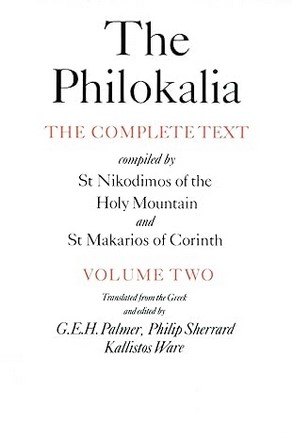
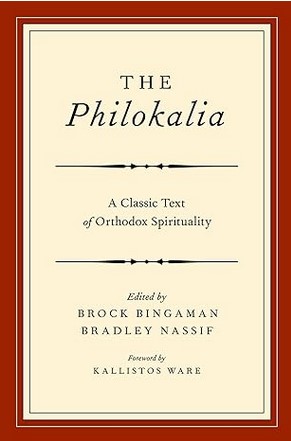
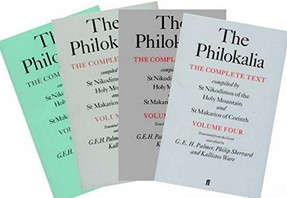
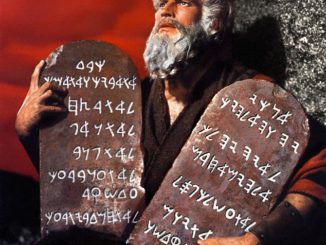
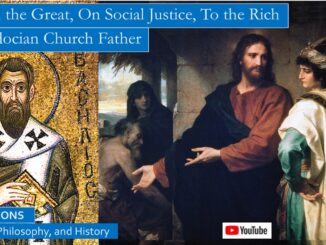
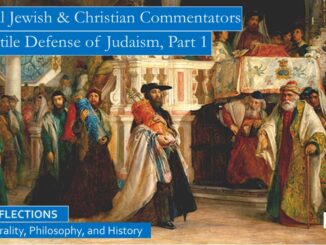
2 Trackbacks / Pingbacks